Russia’s Policy of Deception and Denial[Over] 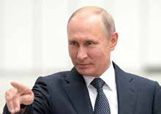 By Eugene Kogan, Tbilisi-based defence and security expert By Eugene Kogan, Tbilisi-based defence and security expert
A policy of deception and denial is the cornerstone of Russia‘s overarching strategy of confusion, paralysis and ultimately defeat of the opponent.
Consistency, conviction and perseverance are key words to describe the policy of deception and denial. The cases presented below shed light on the consistent pattern of President Vladimir Putin’s government to deceive others and depict Russia as the one that comes to the aid of the underdogs, whether in Georgia, Ukraine or elsewhere. Syria is a special case where Russia cannot abandon its military bases to aggressive Western powers. READ MORE
Expect No Changes on the Karabakh Issue in the Next Year or Two[Over]  By Benyamin Poghosyan, PhD, Executive Director, Political Science Association of Armenia By Benyamin Poghosyan, PhD, Executive Director, Political Science Association of Armenia
On April 11, the incumbent President of Azerbaijan lham Aliyev was re-elected for his fourth term in office. Despite a boycott by the Azerbaijani opposition, as well as a tough assessment on elections from western observers, very few doubt that Aliyev will continue to rule in Azerbaijan. On April 9, Armenia finalized its transformation from semi-presidential system of government to a parliamentary one. The Parliament elected a new President - former Armenian ambassador in the UK Armen Sarkissian. His role defined by the new constitution is purely ceremonial. READ MORE
Armenia’s Karabakh Strategy, from Status Quo to Preemption[Over]  By Benyamin Poghosyan, PhD, Executive Director, Political Science Association of Armenia By Benyamin Poghosyan, PhD, Executive Director, Political Science Association of Armenia
The settlement of Nagorno-Karabakh conflict is the number one national security priority for Armenia. Armenia guarantees the security of the people of the Nagorno Karabakh Republic, having supported Karabakh during the 1992–94 war with Azerbaijan and through the years of cease-fire. Since 1994, Armenia has been involved in negotiation process in order to resolve the conflict with Azerbaijan. In recent years talks focused on the so-called Madrid Principles prepared by international mediators. Armenia accepted these principles as a basis for settlement and expressed willingness to sign a framework agreement during the summit in Kazan, Russia in 2011. READ MORE
The New End Game (Part 1)[Over]  By Mehmood-Ul-Hassan Khan, EGF Affiliated Expert
By Mehmood-Ul-Hassan Khan, EGF Affiliated Expert
The new “end game” has been started by the national, regional and international power brokers. Shahid Khaqan Abbasi, who has been sworn in as the new Prime Minister of Pakistan, has already announced his priorities. He said there would be no load-shedding after November this year, and he pointed out that ten thousands megawatts of additional electricity will be added to the national grid. The completion of the ongoing mega-projects of energy in different parts of Pakistan would also be one of his national priorities. READ MORE
Would have Russia found annoying the participation of Armenia in another NATO exercise?[Over]  By Benyamin Poghosyan, PhD, Executive Director, Political Science Association of Armenia By Benyamin Poghosyan, PhD, Executive Director, Political Science Association of Armenia
Armenia did not turn up for a NATO military exercise in Georgia as was expected. The most probable reason may be the attempt of Yerevan to avoid jeopardizing its strategic alliance with Russia.
On September 3rd, NATO's Agile Spirit 2017 military drills were launched in Georgia with the participation of Georgian, US, Ukrainian, Romanian, Bulgarian, Latvian and Azerbaijani troops. Armenia was among the countries due to participate, but cancelled its involvement although the Armenian Ministry of Defence issued a statement on September 4th saying that Armenia had never decided to take part in that exercise. READ MORE
- September 20, 2017 20:03PM
Turkey's Relations with and Relevance for NATO[Over]
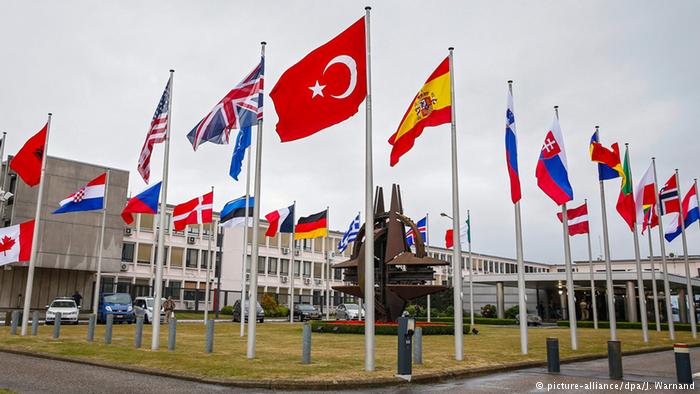 By Eugene Kogan, Tbilisi-based defence and security expert By Eugene Kogan, Tbilisi-based defence and security expert
It should be remembered that Turkey’s relations with NATO were not as smooth as perhaps some experts wished to think, even before the failed coup on 15 July 2016. For instance, back in November 2009 the AKP government was adamant that despite Turkish soldiers’ participation in the ISAF mission they were not combat troops. Turkey's position at the time irked allies in NATO and the US in particular, and it has not changed since then. READ MORE
- September 14, 2017 20:25PM
NATO and Turkey continue to need each other[Over]  By Benyamin Poghosyan, PhD, Executive Director, Political Science Association of Armenia By Benyamin Poghosyan, PhD, Executive Director, Political Science Association of Armenia
In recent months, Turkey has been facing increasing difficulties with key NATO member states. The United States' growing reliance on Syrian Kurdish forces in Syria as a key force capable of effectively fighting Islamic State and US President Donald Trump's decision to arm Kurdish YPG units placed additional strains on bilateral US-Turkey relations, which have been sharply deteriorating since the July 2016 military coup and with Turkey's unsuccessful efforts to organize Fethullah Gulen's extradition from the US. READ MORE
Armenia Takes Leading Position in CSTO[Over]  By Benyamin Poghosyan, PhD, Executive Director, Political Science Association of Armenia By Benyamin Poghosyan, PhD, Executive Director, Political Science Association of Armenia
An Armenian general is now at the helm of the CSTO military alliance. This may prove to be a double edged sword for Armenia.
The South Caucasus is one of the battlefields in the current Russia-West confrontation. As a part of the former Soviet space, the region is perceived by Russia as an area of its legitimate "special interests." For the West, including the United States, NATO and the EU, the view of the region is defined by its role as a key transit route for Caspian energy resources to reach Europe circumventing Russia, and as an important gateway to exert influence in the nearby Middle East. Regional geopolitical competition is further complicated by the onset of Iran and Turkey. READ MORE
New Russian Order in the Middle East?[Over] 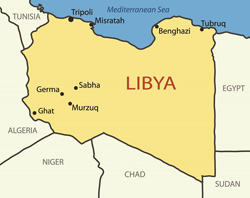 By Dr.Cyril Widdershoven, EGF Affiliated Expert, Military geopolitics By Dr.Cyril Widdershoven, EGF Affiliated Expert, Military geopolitics
Military environment in the Mediterranean is changing according to the chess plans of Russia’s leader Vladimir Putin. After bridging the immense opposition Russia was encountering during and after the demise of the USSR, a new Russian influence sphere has been built up of unforeseen order. It how the situation is perceived by Western leaders and military experts.
Re-emergence of Russian military assets and bilateral and multilateral relations with Arab countries is now being substantiated by the set-up of new military alliances in and around the Mediterranean. READ MORE
EGF convenes high level expert seminar on Nagorno-Karabakh conflict resolution in Tbilisi[Over]
On 22 July 2015, EGF convened a further dialogue event between Armenian and Azerbaijani experts in its ongoing sequence on "What the South Caucasus Region Could Be: Exploring the Role of Economic Initiatives as Peace Building Tools in the Nagorno-Karabakh Context" in Tbilisi (Georgia). Similar to previous events of this nature held in 2014, the Tbilisi meeting unfolded in a constructive atmosphere and aimed to assess the role of economic initiatives in building peace in the Nagorno-Karabakh context. READ MORE
Uzbekistan President Karimov’s long-term vision of a Central Asian Nuclear Weapons Free Zone is now much closer to realisation[Over] 
 Snapshot analysis by Ben McPherson, Principal Editor, European Geopolitical Forum
Snapshot analysis by Ben McPherson, Principal Editor, European Geopolitical Forum
In May 2014 an important initiative, the Central Asian Nuclear Weapon Free Zone, or CANWFZ, was enshrined by the actions of five nuclear states—the United States, the United Kingdom, France, China and Russia—as they signed a Protocol agreeing to respect the non-proliferation framework. The idea has been discussed since at least 1993, when the President of Uzbekistan, Islam Karimov, proposed it at the UN General Assembly. READ MORE
“Towards Europe?! Straddling Fault Lines and Choosing Sides in the South Caucasus” [Over] 10th Workshop of the PfP Consortium’s “Regional Stability in the South Caucasus” Study Group (RSSC SG)
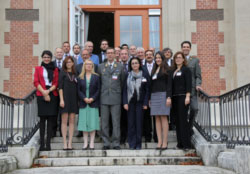 On 6-8 November, 2014, the PfPC and the Austrian National Defense Academy jointly organized the 10th Workshop of the RSSC SG at “Schloss Rothschild” in Reichenau (Austria). This workshop offered a platform for constructive dialogue among government and academic experts on the prospective roles of the EU and the Eurasian Economic Union (EEU) in breaking the current deadlocks in the resolution of the protracted conflicts in Abkhazia, South Ossetia and Nagorno-Karabakh. During this workshop, a panel moderated by George Niculescu, the Head of Research of EGF, examined the background and the potential implications from the perspectives of South Caucasus (SC) states of having to make undesirable choices between the EU and the EEU. The panelists’ presentations and the ensuing discussion highlighted that, against the backdrop of the Ukrainian crisis, maintaining freedom of choice on the ways and levels of engagement with both the EU and the EEU is a critical interest for each SC state, and a prerequisite for effective conflict resolution. In this context, Mr Niculescu thought that “the EU might work towards developing options for harmonizing the European and Eurasian integration normative systems. One of the options to be explored might involve sustaining post-conflict regional economic cooperation as a way to circumvent the dilemma of the states caught in-between competing European and Eurasian integration processes.” READ MORE. Please see the relevant post on Facebook here. On 6-8 November, 2014, the PfPC and the Austrian National Defense Academy jointly organized the 10th Workshop of the RSSC SG at “Schloss Rothschild” in Reichenau (Austria). This workshop offered a platform for constructive dialogue among government and academic experts on the prospective roles of the EU and the Eurasian Economic Union (EEU) in breaking the current deadlocks in the resolution of the protracted conflicts in Abkhazia, South Ossetia and Nagorno-Karabakh. During this workshop, a panel moderated by George Niculescu, the Head of Research of EGF, examined the background and the potential implications from the perspectives of South Caucasus (SC) states of having to make undesirable choices between the EU and the EEU. The panelists’ presentations and the ensuing discussion highlighted that, against the backdrop of the Ukrainian crisis, maintaining freedom of choice on the ways and levels of engagement with both the EU and the EEU is a critical interest for each SC state, and a prerequisite for effective conflict resolution. In this context, Mr Niculescu thought that “the EU might work towards developing options for harmonizing the European and Eurasian integration normative systems. One of the options to be explored might involve sustaining post-conflict regional economic cooperation as a way to circumvent the dilemma of the states caught in-between competing European and Eurasian integration processes.” READ MORE. Please see the relevant post on Facebook here.
- February 20, 2015 18:32PM
Sailing the Unsettled South Caucasus through Troubled Waters towards Regional Integration[Over]  George Vlad Niculescu,
George Vlad Niculescu,
Head of Research, the European Geopolitical Forum
Just like other parts of Eurasia, the South Caucasus is facing the challenge of a renewed East-West geopolitical competition underpinned by three evolving challenges: 1) a growing ideological gap between Russia and the West; 2) the chronic persistence of protracted conflicts; 3) the dilemma of post-Soviet states: European vs. Eurasian integration. More specifically, the South Caucasus geopolitical landscape is shaped by: READ MORE
- November 25, 2014 20:56PM
What Kind of Sovereignty? Examining Alternative Governance Models in the South Caucasus[Over] 8th Workshop of the PfP Consortium Study Group “Regional Stability in the South Caucasus”
On 07-09 November 2013, Mr. George Niculescu, the Head of Research of the European Geopolitical Forum, attended the 8th Workshop of the PfP Consortium Study Group “Regional Stability in the South Caucasus”, held in Reichenau (Austria). Mr. Niculescu moderated the panel on “Alternative Models of Sovereignty in Practice” aiming to propose practical solutions for “joint political and administrative” governance in the South Caucasus. Distinguished panelists from Armenia, Azerbaijan, Germany and the United Kingdom put forward their thoughts on the subject, while the audience consisting of officials and experts from regional and international think tanks, education institutions, and civil society actively debated panelists’ proposals. Mr. Niculescu concluded that: “Rather than trying to impose unilateral solutions involving the final status of the unrecognized political entities in the South Caucasus, regional states and relevant international actors should rather focus creative energies on setting up transitional processes aimed at achieving multilateral governance over the regional commons. Moreover, as suggested by lessons learned in the Western Balkans, region building strategies should effectively complement international efforts for conflict transformation. However, a champion for regional integration is still missing in the South Caucasus. Potentially, the EU could revitalize its involvement in strengthening regionalism in the South Caucasus in strategic coordination with Russia and Turkey“. Click here to see an outline of the workshop and here to see the ensuing policy recommendations.
NATO Strategic Operations in Post-Cold War Security Point to the Core Role of Partnerships in the Way Forward[Over]
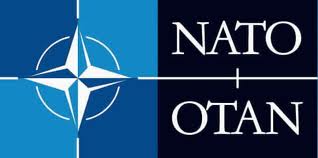 By George Niculescu, By George Niculescu,
Head of Research, The European Geopolitical Forum
Introduction
Since the end of the Cold War, the future of NATO has been a topic for debate among politicians, bureaucrats, scholars and journalists familiar with the European and global security issues. NATO’s future role within the newly evolving global security structure has been a particularly relevant topic for such debates. The North Atlantic Alliance has so far proven itself to be a flexible enough entity in relation to adapting itself to post-Cold War security realities in order to survive the bygone era of the 20th Century. Both political and military leaders of the Alliance have understood the key lesson learned from the fall in relevance of the Warsaw Pact after the collapse of the communism in Central-Eastern Europe: the continuous adaptation of NATO to the new security challenges is the only viable alternative to the Alliance’s disappearance from the geostrategic map. READ MORE
Ukraine’s OSCE Chairmanship and the Transnistrian Conflict: A Breakthrough in the Making?[Over]  Paul Pryce Paul Pryce
EGF Affiliated Expert on Conflict Management and the OSCE Institutions
Since the outbreak of initial hostilities in November 1990, the Transnistrian conflict persists. While numerous initiatives have been proposed over the past two decades both by external actors and by the parties to the conflict, the de jure Moldovan government and the de facto Transnistrian authorities, little progress has been made to secure a more lasting peace.
Click here to read more.
Whither the Euro-Atlantic security?[Over]  By George Niculescu, By George Niculescu,
Director of Programs, Centre for East European and Asian Studies Bucharest,
Affiliated Expert, European Geopolitical Forum Brussels
Historically, the roots of the phrase "Euro-Atlantic security" stem from the revolutionary shift towards cooperative relations between NATO and its former adversaries from the Warsaw Treaty Organization promoted through the North Atlantic Cooperation Council and the Partnership for Peace (PfP). From an institutional point of view, since 1997, the Euro- Atlantic security is tightly linked with the Euro-Atlantic Partnership Council (EAPC) which has been created jointly by the NATO members and PfP countries (including Russia, Ukraine, and the other independent republics emerging from the dissolution of the former Soviet Union) as a forum enabling an "expanded political dimension of partnership and practical cooperation under the PfP" [Basic Document of the EAPC]. The EAPC was meant to complement the respective activities of the OSCE, the European Union, and the Council of Europe. READ MORE
The Deadlock in the Karabakh Negotiations: A Possible Way Forward[Over] 
Dr Beniamin Poghosyan
Deputy Director, Institute for National Strategic Studies, MOD, Armenia
Executive Director, Political Science Association of Armenia
The Karabakh conflict negotiation process is in an obvious stalemate after the apparent failure of the Kazan summit which took place last June. Three-years of mediation efforts by Russian President Dmitry Medvedev accompanied by efforts of the Minsk Group’s two other Co-chair-state-leaders have delivered no results. The much anticipated breakthrough which should have taken place at the Kazan trilateral summit was transformed into a half page statement with no concrete steps and decisions. President Medvedev’s further efforts to move the process through bilateral meetings with Azerbaijani and Armenian Presidents did not bring any meaningful results. Meanwhile, the situation in the front line is deteriorating mainly due to Azerbaijani snipers deadly attacks and retaliatory actions of Karabakh Armed Forces. READ MORE
The Political Challenges Confronting post-Gaddafi Libya[Over] 
By Naim Ameur,
Senior Manager, Prime Ministry of Tunisia
EGF Affiliated Expert on Maghreb politics
The Particularity of the Libyan Revolution
The success of their Tunisian and Egyptian neighbors in their peaceful revolutions encouraged the Libyan people to end the dictatorship of Colonel Muammar Gaddafi who kept his country underdeveloped and deprived of the natural resource wealth during 42 years. READ MORE
Algeria: The Risks of slipping into deeper political crisis[Over] By Eugen Iladi, Independent Expert
The dramatic events in Tunisia and Egypt, where long-serving presidents have been ousted within weeks of each other by “street-led people’s revolts”, are inspiring demonstrators in other Muslim countries to demand structural political change. Libya is currently gripped by deep political crisis, as is the tiny Gulf Monarchy of Bahrain, whilst revolts are ongoing in Yemen, Morocco and Iran. Furthermore, Algeria seems to be one of the next countries possibly hanging in the balance, where the prospect of regime change must now be a question of serious concern. READ MORE
EGF Forum Outlook: regime change and domino effect in the Middle East – who next, how soon?[Over] February 21, 2011
The year 2011 has commenced with unprecedented levels of political turmoil, violence and tension in the Middle East. While this will not necessarily come as a surprise to readers of our previous research on the region, the fact that the Tunisian and Egyptian presidents have been dismissed from power barely within weeks of one another as a result of wide-scale street demonstrations in these two countries, clearly implies that the region has once again entered into a “game breaking” situation. As violence and further protests continue to spread rapidly across the region, the key question of concern to governments, investors and Middle Eastern ruling elites is now which regime is likely to fall next ? Despite the often overlooked heterogeneities of the region, the dramatic events already having taken place in Tunisia and Egypt in the first weeks of 2010 have inspired a domino effect of protests. Demonstrations of varying degree of magnitude are presently engulfing Bahrain, Yemen, Libya, Algeria, Morocco and Iran. They have also taken place in Jordan, while smaller scale demonstrations were planned in Kuwait. While other states across the Middle East are reporting less protest activity, the threat that the Egyptian-Tunisian contagion is posing to the region as a whole cannot not be underestimated. READ MORE
Bringing Russia into NATO: A Trojan horse in the making[Over] EGF Editorial
Is there any logic behind suggestions aired by senior decision makers, both past and present, that Russia could one day become a member of the North Atlantic Treaty Organisation (NATO)? At first glance, Russian membership to NATO may seem as a suggestion bordering on the absurd, given the history of relations between East (Russia/the Soviet Union) and West (the Euro-Atlantic bloc), as well as the fact that “Cold War warriors” are still in positions of power and influence on both sides of the former-Iron Curtain. That being said, the prospect of Moscow joining the NATO alliance has been implied publically by former-Russian presidents, Boris Yeltsin in 1991, Vladimir Putin in 2000, and by former-NATO Secretary-General, Lord Robertson, at a high level political conference in the Russian city of Yaroslavl just last September. READ MORE
- February 10, 2011 11:14AM
EGF Expert Comment[Over]
Mikhail Roshchin
Expert on Radical Islam in the Russian North Caucasus
The Attack on the Chechen parliament in Grozny: Jihad becomes a significant element of everyday life in the Russian North Caucasus
On the morning of 19 October 2010, Chechen Jihadists attacked the parliament building in Grozny, the capital of the Chechen Republic, in the North Caucasus region of the Russian Federation. Six people were killed, including two police officers, one parliament employee and three Jihadists. The attack took place as Russian Interior Minister, Rashid Nurgaliev, was visiting Chechnya. Also at the time of the attack, the chairman of the Chechen parliament, Dukwaha Abdurahmanov, was in discussions with a visiting delegation from the Legislative Assembly of Sverdlovsk Region (in Central Russia). The fact that the attack was timed with the presence of the Russian Interior Minister in Grozny, strongly suggests that the rebels are supported by persons from within the Chechen government structures. It is thus highly likely that the attack was planned carefully and planned from the inside. According to Igor Danilov, a member of the Sverdlovsk delegation, the gun battle between jihadists and the Chechen security forces lasted as long as one hour.
Furthermore, a number of experts on the region have suggested that the attack was orchestrated under the leadership of Hussein Gakaev, a Chechen field commander who opposes the position of Chechen Jihadist leader, Dokka Umarov, as Emir of the self-proclaimed Caucasus Emirate. Gakaev, in his position of refusing to recognize Umarov’s authority, is himself supported by two other leading field commanders of the Chechen Jihad (one Chechen, Aslambek Vadalov, the other Arab). It is worth recalling that on 29 August of this year, Hussein Gakaev and his followers organized an attack on the childhood home of the current president of the Chechen Republic, Ramzan Kadyrov: the village of Tsentoroi. Taking into account these two attacks, which were seemingly perpetrated by Gakaev and his followers, we can deduce that genuine political instability continues to prevail in Chechnya at present, as well as in the wider-North Caucasus region of Russia as a whole. These unsavory incidents, and particularly yesterday’s brazen attack on the Chechen parliament, provide further evidence that Jihad has become a significant element of everyday life in this unruly region of the Russian Federation.
Click here to read Mikhail Roshchin’s recent article on The Caucasus Emirate and the Movement of the Military Jamaats
- November 30, 2010 05:56AM
The EU-Russia Energy Partnership: Overcoming the Challenges[Over] The energy trade between Russia and the countries of the European Union (EU) is of fundamental significance for the energy security of each party. Despite the close proximity of the EU-Russia energy relationship, however, the legal and political basis underpinning this relationship, particularly with regards to the gas trade, has proven itself inadequate in guaranteeing the energy security of both parties. Russia's recent announcement of its intention "of not becoming a member" of the Energy Charter Treaty, and new proposal for global energy security has created further uncertainty. While it is hoped that a new government in Kiev will lead to an improvement of Russian relations with Ukraine, Ukraine's national gas transportation operator remains in a difficult financial position and another gas crisis embroiling Ukraine, Russia and the EU, whilst hardly imminent, cannot be entirely ruled out.
Leading Russian and international energy professionals have shared their views on these energy policy challenges in an online session. Click here to go into the discussions or here to view forum summary
|
|


